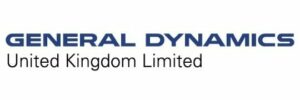Meet Mark, our Disability Confident champion raising awareness of dyslexia…

Mark Condick, DevOps engineer, has been part of our Diversity, Inclusion and Belonging committee since its creation – aiming to raise awareness of hidden disabilities. More recently, Mark joined the Disability Confident working group, here’s why…
Your role as a Disability Confident champion
I joined the working group to help the Company be a Disability Confident employer – aiming to change our culture through providing a better working environment that is fully inclusive and accessible. I’m passionate about raising awareness of hidden disabilities as I’ve experienced the challenges first-hand of living with dyslexia. I want to act as a support system to colleagues, encouraging them to be more open about all disabilities – whether hidden or physical.
What advice would you give when communicating with others?
Growing up with dyslexia meant school was challenging. Teaching was through a traditional ‘chalk and talk’ method which didn’t work for me as I’m more of a visual ‘see and do’ learner.
Everyone with hidden disabilities has a different style and preference, but for me it’s things like preferring a phone call over a text message – and emails that are short and provide key points as I lose interest in long wordy emails.
Some with dyslexia have a short working memory, so I re-read things to process them and remember. That’s why I prefer for my manager to follow-up with a written reminder if something is discussed in a meeting – but again, everyone is different so it’s key to learn individual’s communication styles
How has the Company supported you?
As I think in pictures rather than words, it takes me longer to process long documents and emails. In the past, I’ve been questioned about poor document reporting from those unaware I’m dyslexic – but my manager and team support by giving me extra time for tasks, providing additional explanation, and helping with proof reading if a report I’m working on is for a customer.
This is why it’s essential to have a culture where everyone is open about hidden disabilities – so it avoids hindering progression and development.
Advice to colleagues?
Hosting a Lunch ‘n’ Learn on hidden disabilities to share my experience has encouraged others to be more open. Since then, colleagues have come forward and reached out to me for help and support.
There’s been a big shift in awareness and understanding of hidden disabilities in the last few years. I’ve found that if you’re open and honest about being dyslexic, people are more supportive and open minded.
If you have a hidden disability, ensure you speak with your HR team and your manager so you can get the extra support you need and reasonable adjustments based on your requirements.
